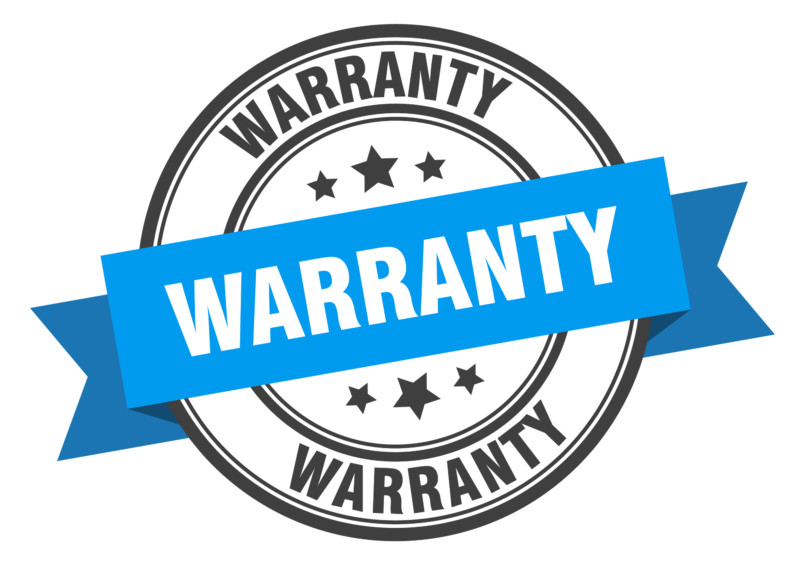Reviewing your roofing warranties is extremely important and can be confusing. If you’re having difficulty understanding all the terms, or wondering if you even need a warranty, this article will explain the differences. At Venture Construction Group of Florida (VCGFL), we educate our clients on these important topics!
It’s important to read through your roofing warranty and options to find the best fit for you. On your next roofing project, it’s essential to ask the contractor installing your roof questions and review the terms.
One common misconception is that warranties are insurance. A warranty is not insurance. It is also not a maintenance agreement. Warranties do not cover you in the same ways. Insurance is a guarantee that you would be paid if certain circumstances occur and certain requirements are met. A warranty is a legal statement that limits issuer liability for any failure to perform the issuer’s product or service.
2 Types of Warranties
There are two warranty types for roofs.
1. Manufacturer Warranty
The Manufacturer Warranty is provided by the manufacturer of the roofing material, and guarantees your roof against material defects. It’s imperative than you carefully review this language with your contractor, as this warranty is non-negotiable.
2. Contractor Warranty
The Contractor Warranty comes from the general contractor or roofing company that installed the roof and this guarantees the workmanship performed on the installation. Contractor Warranties are usually negotiable, and this is a plus since most property owners have unique needs.
What’s Covered?
With both types of warranties, your roof should be entirely covered, including parts, labor, and installation, so you’ll want to be sure that any warranty you’re considering includes both types.
Now that you understand the two types of warranties you’ll need to review, we recommend that you ask as many questions as you can to familiarize yourself with the details. We recommend that you do this before you sign the agreement and purchase.
5 Questions to Ask About Roofing Warranties
Here are five very important questions to ask in advance of your project.
-
What is specifically covered as part of my roof warranty?
As previously stated, roof warranties typically provide coverage from defects in workmanship and materials. So, if there was something wrong with a roof component because of the way it was manufactured, or a product was installed incorrectly, the manufacturing company or installation company would take responsibility and help correct the problem.
Warranties vary because each installation and each product is unique. Your roofing or general contractor should provide you with all of the product warranty information upfront. This should include specific roofing warranty information related to the installation itself. Some manufacturing companies include links to their product warranties on their website, which is also helpful.
Many warranties cover only the depreciated value of your roof. This means that the older your roof, the less money the manufacturer will pay toward replacement. We recommend that you inquire to see if there is proration associated with your roof warranty, as this can be based on the exponential decrease in value of the roof over time.
-
How long does the warranty last?
The expiration dates often vary for the Manufacturer Warranty and the Contractor Warranty. Typically, the Manufacturer Warranty ranges from 20 to 50 years, while the Contractor Warranty ranges one to five years, with options for upgrades. The roofing materials utilized on your particular project are also taken into consideration when determining an expiration date.
-
Is my roofing warranty transferable? Can another person benefit?
Typically, the owner of the building who had the roof installed is the only person entitled to the benefits of a roofing warranty. However, transferrable warranties are offered by many companies. If you plan to sell your home or business in the future, try getting one of these. And if you recently purchased your property, be aware that the previous owner may be required to notify of the transfer within a certain time limit of the sale, in order to ensure that transfer is honored. Be sure to follow up on this and read the fine print.
-
Are there any exclusions or exceptions on this warranty?
Sometimes, based on where you live or who installed your roof, you could be faced with exceptions. A manufacturer might only warranty certain materials, for example, asphalt shingles, and a contractor may require materials to be installed in a very specific manner. It’s important to discuss these details with your roofing or general contractor. Other issues that may be excluded from coverage can include disasters; Acts of God; weather-related damage from water, wind, hail; or subpar roof repairs and alterations. Be sure you clearly review the implications of these possible exceptions, so you’re prepared if you’re faced with one of these issues.
-
If I have a problem during the warranty period, how should I file a claim?
If something is amiss with your roof during your warranty period, contact the material manufacturer and the contractor who installed your roof if you suspect there’s a problem.
Don’t forget to file your warranty paperwork in a safe place where other trusted members of your family, business, associates and/or team can also access it if you’re not available. It’s also wise to scan it and save it electronically on the cloud for easy access, and you’ll always know it’s backed up. If you ever need to refer to it, you can easily find the contact information for your manufacturer, contractor, and the information you might need to file a claim.


